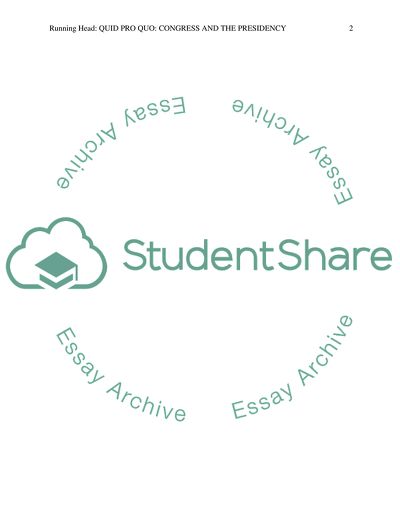Cite this document
(Quid Pro Quo: Congress and the Presidency Term Paper, n.d.)
Quid Pro Quo: Congress and the Presidency Term Paper. Retrieved from https://studentshare.org/politics/1795712-congress-and-the-presidency
Quid Pro Quo: Congress and the Presidency Term Paper. Retrieved from https://studentshare.org/politics/1795712-congress-and-the-presidency
(Quid Pro Quo: Congress and the Presidency Term Paper)
Quid Pro Quo: Congress and the Presidency Term Paper. https://studentshare.org/politics/1795712-congress-and-the-presidency.
Quid Pro Quo: Congress and the Presidency Term Paper. https://studentshare.org/politics/1795712-congress-and-the-presidency.
“Quid Pro Quo: Congress and the Presidency Term Paper”, n.d. https://studentshare.org/politics/1795712-congress-and-the-presidency.


